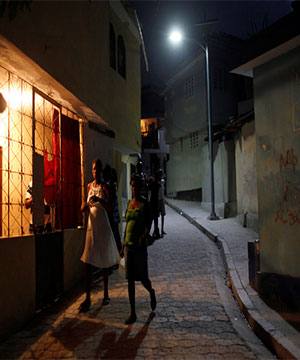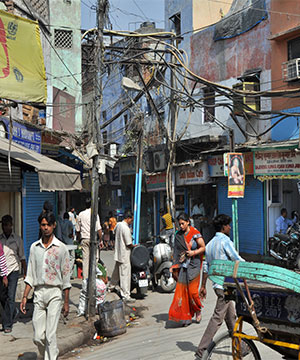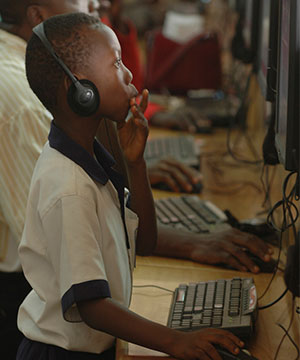|
Program Design
|
|
|
The program was designed based on feedback from country practitioners and World Bank’s staff through virtual consultations, face-to-face workshop, and interviews. The virtual (online) consultation gathered over 100 participants from city authorities, electricity and LPG utilities, NGOs and civil society organizations from Africa, Asia and Latin America to discuss the challenges and solutions in scaling-up access to affordable and reliable electricity, and clean cooking fuels and stoves.
The virtual discussion culminated in a two-day, face-to-face, practitioner workshop during the ESMAP Knowledge Exchange Forum in May 2012, held at the World Bank Headquarters in Washington, and co-sponsored by Cities Alliance. Practitioners offered ideas on interventions that the international development community can undertake to improve global urban energy access, and shared innovative approaches to reaching poor urban communities, including:
-
Brazil: AES Eletropaulo trained local agents who reached out to about 1.4 million households in slum communities to: ensure safe electricity connections and realize energy efficiency improvements while reducing electricity theft.
-
India: the local NGO Shelter Associates combined community outreach and geographic information system (GIS) technology to build evidence and initiate dialogue with local governments for improved access to energy services
-
Kenya: Kenya Power substantially expanded electricity connections by implementing simple technologies such as pre-paid meters and outdoor connection boards while extending credit to low-income consumers.
Additionally, select World Bank staff with experience on urban energy access were consulted to better understand operational challenges and define appropriate assistance.
|
|
Urban Energy Access Program
|
|
|
The program objective is to contribute to increased or improved access to energy for the poor in urban and peri-urban areas. It assists country practitioners and World Bank project teams on urban poor access activities, and help bridge knowledge gaps. At the country level, the program cooperates with a number of partners including the Cities Alliance, the Global Partnership on Output-Based Aid (GPOBA), and the UN-Habitat. The program comprises three components:
-
World Bank Operations Support: to help scale up World Bank’s operations on urban poor energy access, the program offers financial and technical support for the design and implementation of activities on improved access for the urban poor. The support also includes south-south knowledge exchange to bring successful experiences to country stakeholders.
-
Cities Alliance Program Support: To incorporate energy access dimensions into city development strategies and slum upgrading operations, the program works in partnership with the Cities Alliance. It provides studies, training, and other services to inform the development and implementation of urban development strategies, action plans, and programs.
-
Knowledge products: policy notes, case studies, guidance notes, and analytical briefs will be developed to strengthen the knowledge base on urban poor energy access and inform support offered under the World Bank and Cities Alliance operations.
|
|
Program Activities
|
|
|
The following activities have been or are being carried under each component:
World Bank Operations Support
-
Kenya: the program supported the implementation of the Kenya Slum Electrification Project. The support started with an assessment of barriers to electricity connection uptake. One of the assessment recommendation is the improvement of Kenya Power’s slum community engagement. To this end, the program, in collaboration with the World Bank energy project team and the Informal Settlements Improvement project team, facilitated a week-long, south-south knowledge exchange that brought together power utility experts from Brazil, Colombia, and South Africa, along with local practitioners, the UN-Habitat, and Kenya Power staff to brainstorm and help improve Kenya Power’s community engagement practices.
-
Haiti: the program is supporting efforts to reducing nontechnical electricity losses while improving electricity access, under the World Bank-financed Rebuilding Energy Infrastructure and Access project. It is contributing to pilot the regularization of informal electricity connections in selected zones in the Port-au-Prince Metropolitan Area. If successful, the pilot is expected to be scaled up.
Cities Alliance Program Support
Knowledge Products
-
Guidance note on community engagement: the note will provide power distribution utilities, World Bank Group’s operational task teams and other key stakeholders with a menu of practices, options, and reference material that could be tailored and applied at various stages of the slum electrification process, to ensure an effective and sustainable engagement with slum communities and customers.
|


